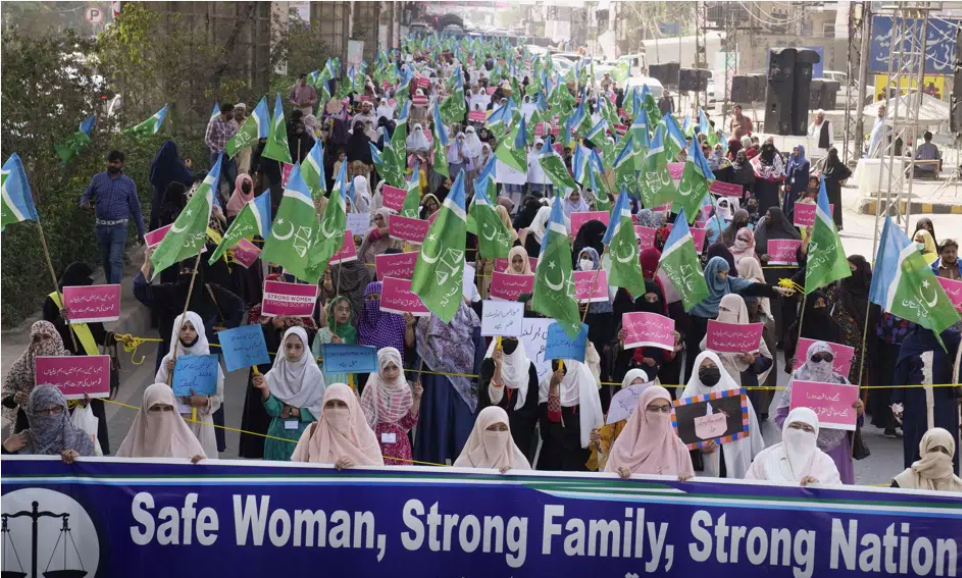
Associated Press
Why AP Media Bias Deserves High Level of Scrutiny
The Associated Press has historically been considered the "gold standard" of objective journalism. It operates a wire service, meaning local and national news organizations around the country use AP's content to fill gaps in their coverage. That means AP news content has extremely wide impact and reach.
As such, AllSides does particularly extensive analysis of AP. When AP displays political bias, or fails to portray political events, legislation, and perspectives in a balanced and even-handed way, the impact is broad and far-reaching. A media outlet that is relied upon by outlets all over the country deserves a high level of scrutiny when it comes to political bias.
Millions of people around the world planned to demonstrate, attend conferences and enjoy artistic events Wednesday to mark International Women’s Day, an annual observance established to recognize women and to demand equality for half of the planet’s population.
While activists in some nations noted advances, repression in countries such as Afghanistan and Iran, and the large numbers of women and girls who experience sexual assaults and domestic violence worldwide highlighted the ongoing struggle to secure women’s rights.
United Nations Secretary-General Antonio Guterres noted this week that women’s rights were “abused, threatened and violated” around the world and gender equality won’t be achieved for 300 years given the current pace of change.
Progress won over decades is vanishing because “the patriarchy is fighting back,” Guterres said.
The United Nations recognized International Women’s Day in 1977, but the occasion has its roots in labor movements of the early 20th century. The day is commemorated in different ways and to varying degrees in different countries.
Women gathered in Pakistan’s major cities to march amid tight security. Organizers said the demonstrations were aimed at seeking rights guaranteed by the constitution. Some conservative groups last year threatened to stop similar marches by force.
Women’s rights activists in Japan held a small rally to renew their demand for the government to allow married couples to keep using different surnames. Under the 1898 civil code, a couple must adopt “the surname of the husband or wife” at the time of marriage.










